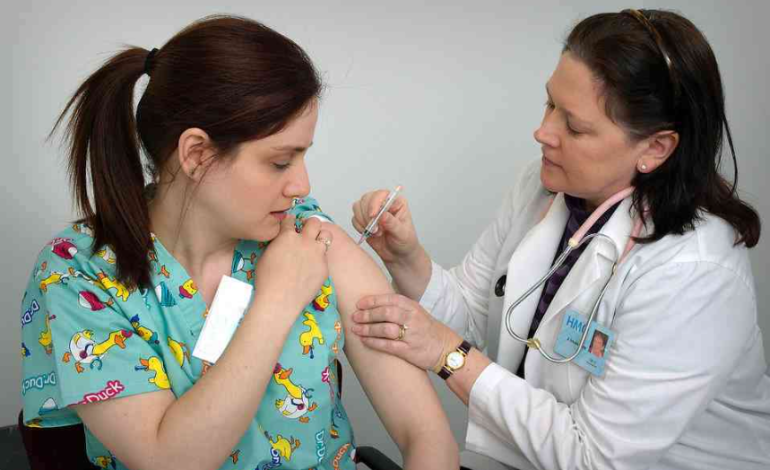
Low Progesterone: Causes, Complications, and More

Progesterone is a sex hormone mainly found in females. The ovaries start producing it after ovulation each month and continue until your period begins. Progesterone helps thicken the lining of the uterus, and if an egg is fertilized, it will implant into this lining. If fertilization happens, progesterone levels keep rising, which is vital for maintaining pregnancy.
What are the signs of low progesterone? How does progesterone deficiency affect women?
What do low progesterone levels mean?
Having low progesterone means your levels are lower than normal for most people. However, progesterone levels naturally fluctuate throughout your menstrual cycle. To determine if your levels are low, it’s important to consider which phase of your cycle you’re in.
To check your progesterone levels, you’ll need a test. Blood tests are the most common, but urine tests can also be used. Saliva tests are available, but research has not proven them to be consistently reliable. It’s important to take the test at the right time in your cycle. Your results will be compared to the normal range for that phase to determine if your levels are low. If you’re pregnant, progesterone is evaluated based on how far along you are.
What causes low progesterone levels?
Several factors can cause low progesterone, including:
- Chronic stress, leading to high cortisol levels
- Obesity
- Hypothyroidism (low thyroid hormone)
- Polycystic ovary syndrome (PCOS)
- Low progesterone is also expected during menopause, as both progesterone and estrogen drop significantly, causing many menopause symptoms.
What happens if you have low progesterone?
Low progesterone can cause a variety of symptoms, which depend on your situation. Women with low progesterone might experience infertility, difficulty conceiving, or trouble carrying a pregnancy.
When progesterone levels decrease, estrogen often becomes the dominant hormone. This can lead to issues like fibroids, endometriosis, breast tenderness and cysts, and migraines. Balancing estrogen with progesterone can help with these conditions.
Women going through menopause have both low progesterone and estrogen, which can cause symptoms like hot flashes.
Common symptoms of low progesterone
Some signs of low progesterone include:
- Decreased sex drive
- Irregular or absent periods
- Mood swings, depression, or anxiety
- Weight gain
- Migraines or frequent headaches
- PMS (fatigue, mood swings, bloating, headaches, and other symptoms before your period starts)
- Acne
- Difficulty sleeping
- Hot flashes
- Infertility
While these symptoms may suggest low progesterone, the only way to confirm it is through a hormone test.
Low progesterone and fertility
Progesterone is crucial for fertility. Without enough progesterone, your menstrual cycle may become irregular. Low progesterone often means you’re not ovulating, or releasing an egg. Progesterone also helps thicken the uterine lining to prepare for embryo implantation. Without enough progesterone, an embryo might not be able to implant properly, making pregnancy unlikely.
How to naturally boost progesterone
Some women may take progesterone supplements, but others prefer natural ways to balance their hormone levels. Stress is a big factor, as high cortisol levels can lower progesterone. Managing stress through yoga or meditation can help maintain hormone balance.
Obesity can also lower progesterone, so maintaining a healthy weight is important. Eating well and exercising regularly can help, but be careful not to overdo exercise, as excessive physical activity can create stress on the body and cause hormone imbalances.
FAQs
Can low progesterone cause headaches?
Yes, women with low progesterone often experience headaches, including migraines. This is thought to be because the body’s estrogen levels rise without enough progesterone to balance it. Estrogen causes blood vessels to dilate and promotes fluid retention, which can trigger headaches.
Can low progesterone cause infertility?
Yes, low progesterone is linked to infertility. Progesterone helps prepare the uterus for implantation after ovulation. Without enough, your menstrual cycle can become irregular, and it may be difficult to conceive. Low progesterone often means you haven’t ovulated, which prevents pregnancy.
Can you have low progesterone and still be pregnant?
It’s possible to become pregnant with low progesterone, but it increases the risk of miscarriage. It’s not clear if low progesterone causes miscarriage or if it’s a result of it.
Can you ovulate with low progesterone?
If your progesterone levels are very low during the second half of your cycle, it’s likely that you didn’t ovulate. Normally, ovulation triggers a rise in progesterone.





